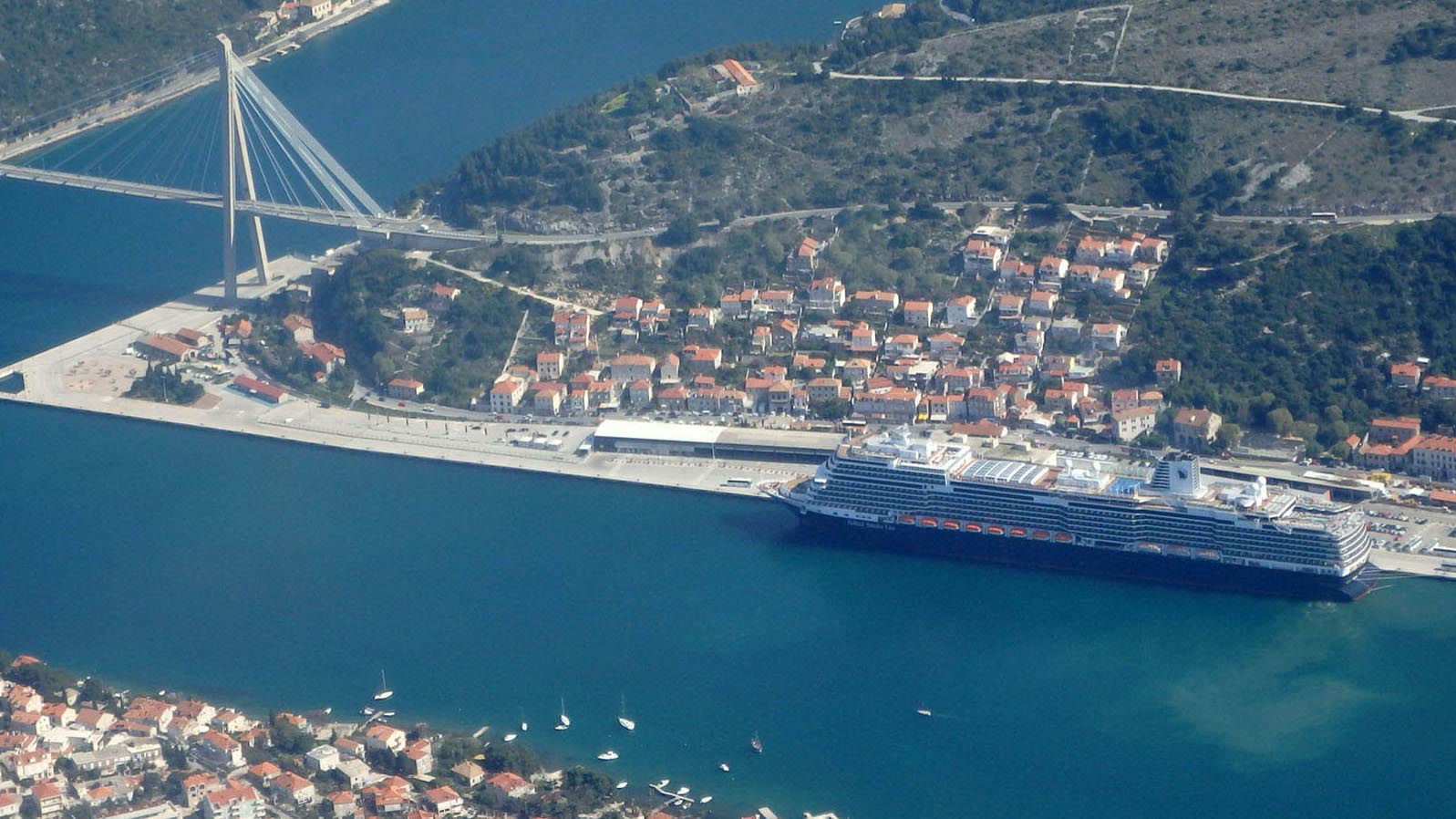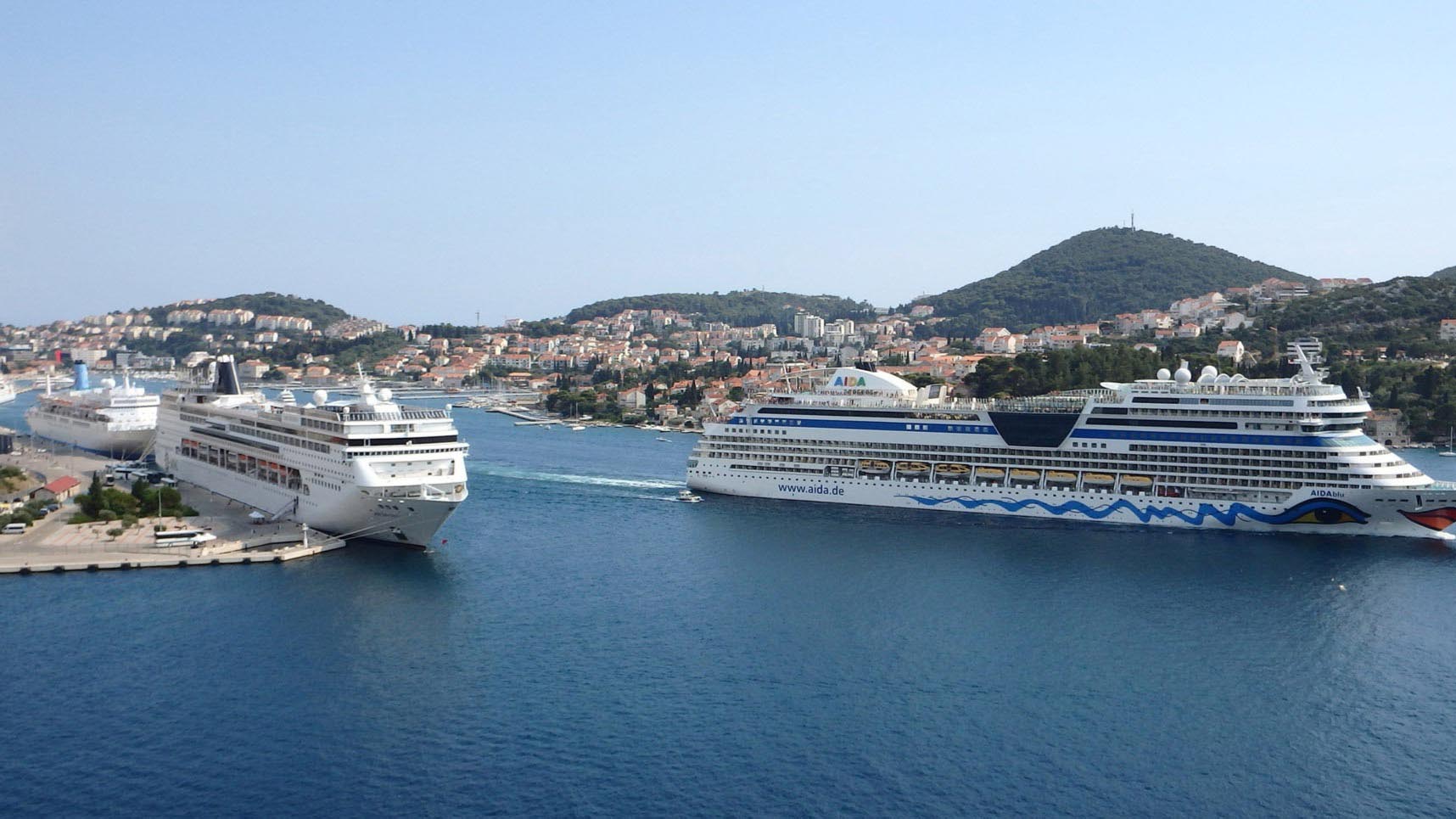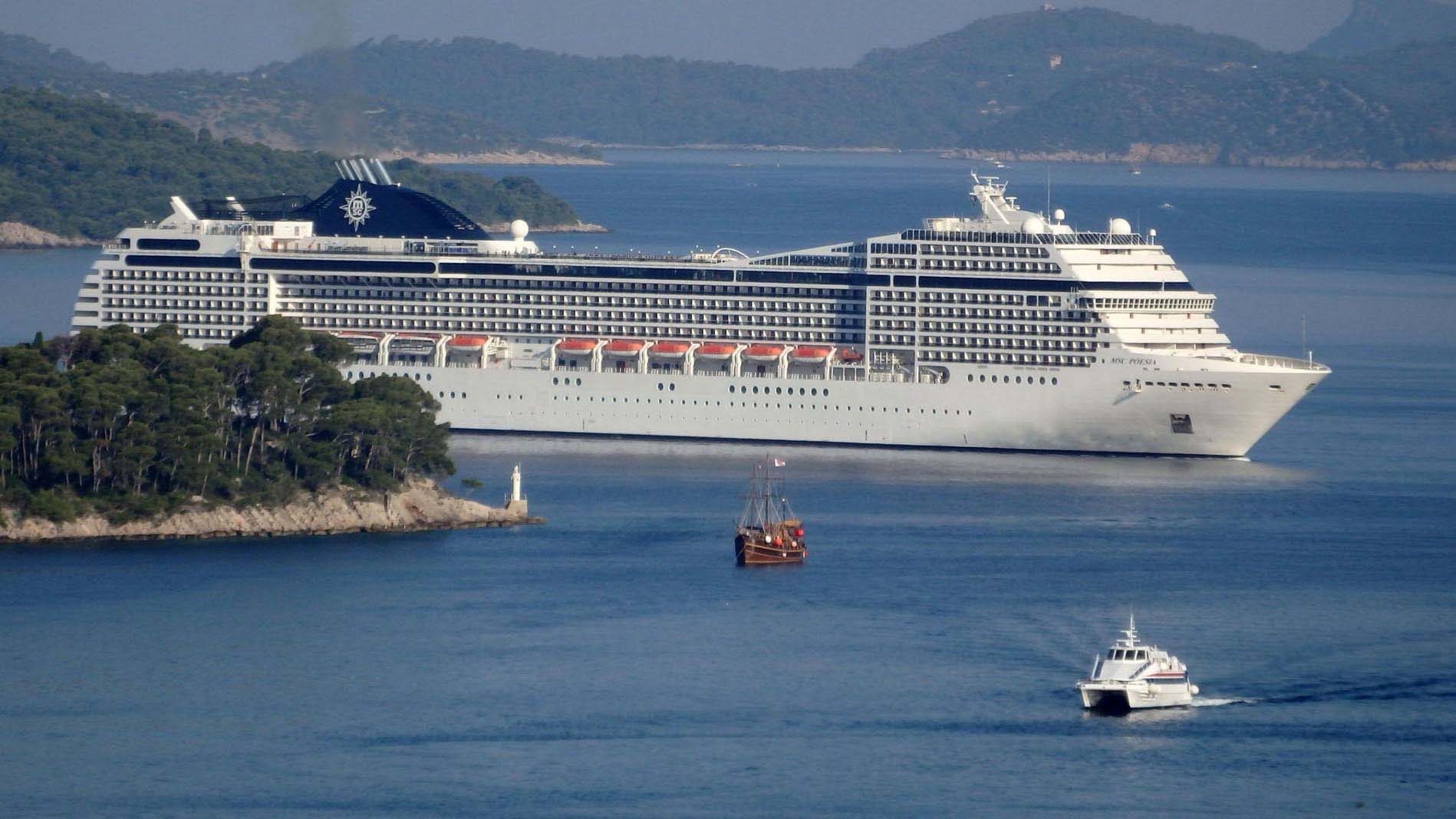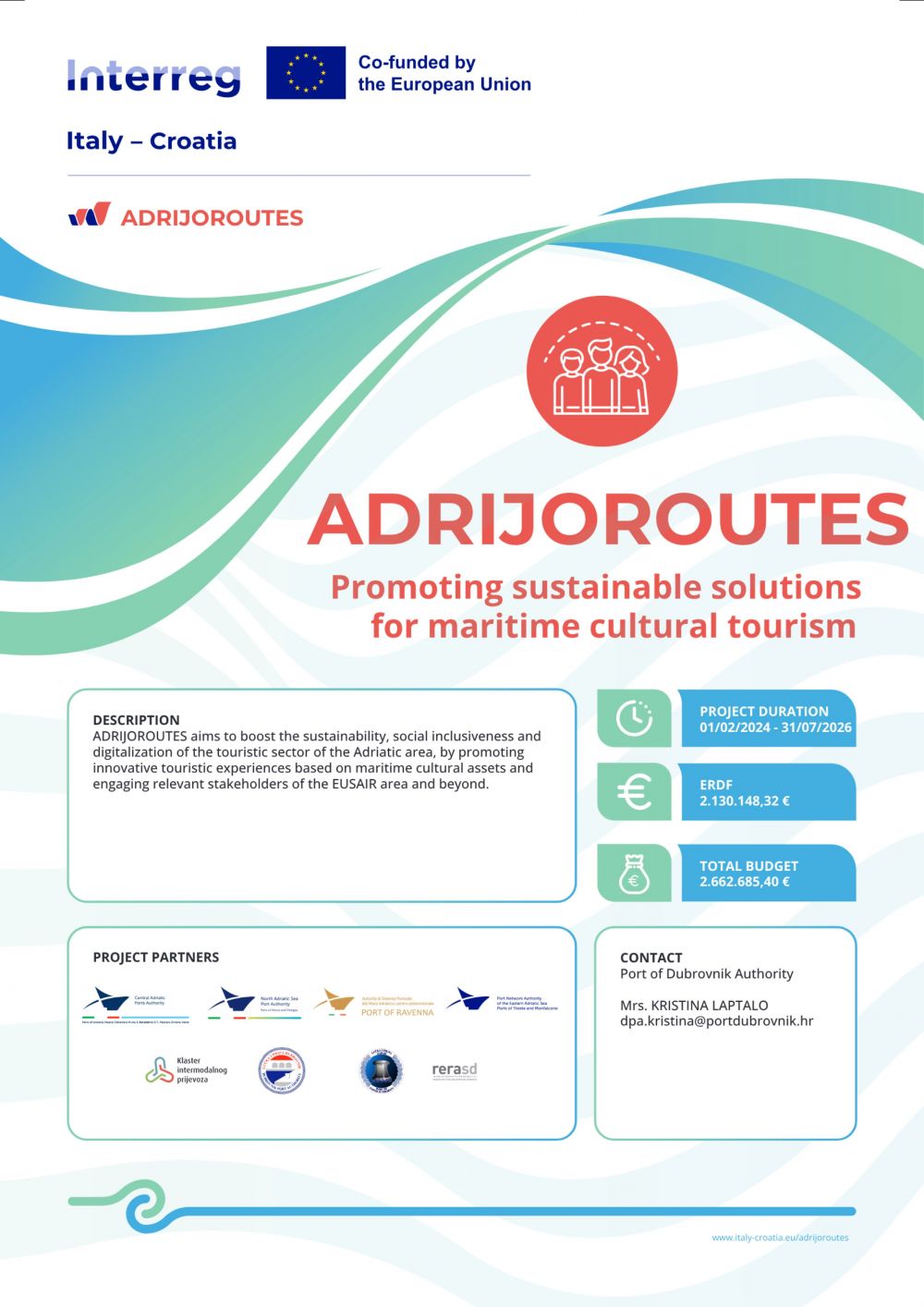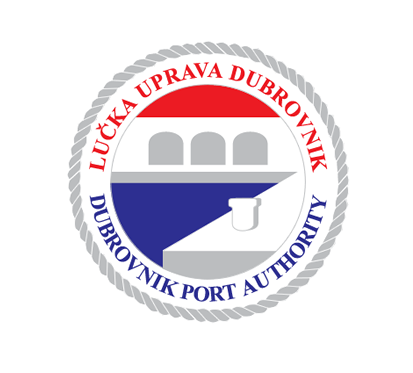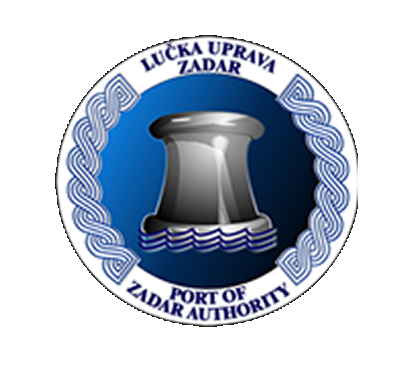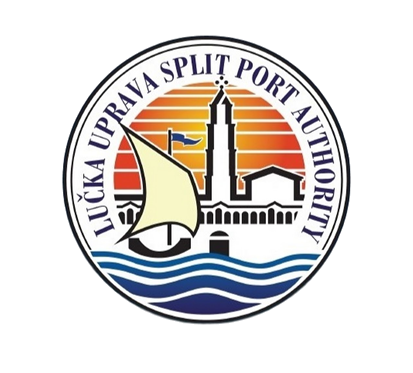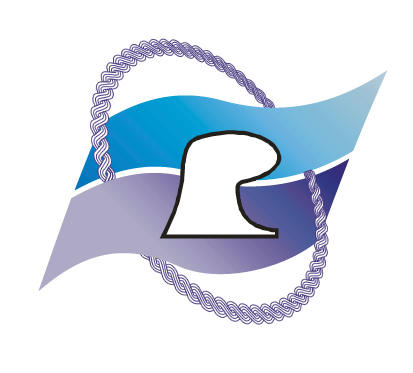EU Funds
PRESPORT (PRomoting grEen and Smart PORT hubs in the Adriatic Sea)
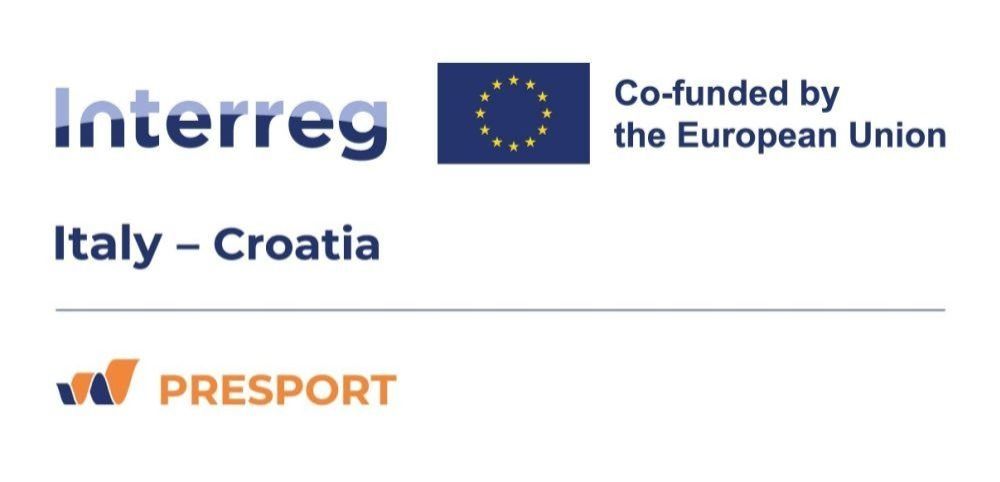

PRESPORT - PRomoting grEen and Smart PORT hubs in the Adriatic Sea
Co-funded by the Interreg VI A Italy-Croatia 2021-2027 Programme
•Project duration: 42 months - 07/2025 - 12/2028
•Budget: 7.498.925,30 euros
•Amount co-financed by EU: ERDF 5.999.140,24 euros
PRESPORT is a cross-border initiative co-funded by the European Union to support the green and digital transformation of ports in Italy and Croatia. Through strong cooperation between public authorities, port operators, and logistics stakeholders, PRESPORT promotes carbon neutrality and digital innovation to make Adriatic ports more efficient, resilient, and sustainable.
The project delivers advanced planning tools and tests them through joint pilot actions and strategic investments across five key areas:
1. Energy efficiency and renewable energy production
2. Smart lighting systems and climate resilience measures
3. Deployment of e-mobility solutions in port operations
4. Digitalization of ports, including digital twin technologies and multimodal travel planning tools
5. Enhanced port security
The PRESPORT partnership brings together 15 organizations, 8 from Italy and 7 from Croatia, including 11 port authorities, a regional administration, a municipality, a development agency and a faculty. Together, they represent 26 ports of varying sizes, from major TEN-T core hubs to smaller regional ports across both countries.
All are united by a common goal: to tackle shared territorial challenges with innovative, sustainable solutions. By involving key decision-makers with direct responsibilities in port planning and development, PRESPORT will ensure the delivery of practical outcomes and the adoption of effective, lasting change.
Main activities include enhancing ports’ environmental performance with green solutions such as energy efficiency and e-mobility, promoting digital tools such as digital twins and travel planning, and sharing knowledge through training and exchanges to support sustainable, smart port development across the region.
More info: https://www.italy-croatia.eu/web/presport
CRESPORT ( Improving the Cyber REsilience and Security of Adriatic PORTs)
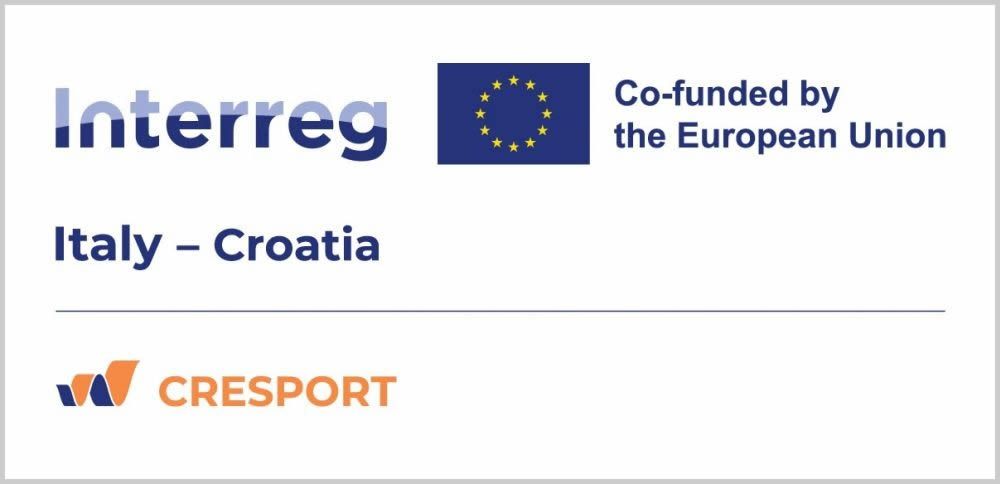
CRESPORT aims at tackling the challenge of guaranteeing to the ports of the area a more secure and resilient IT infrastructure. The Adriatic ports represent a key player in the current and future transport scenario not only for Italy and Croatia but also for Europe as a whole. In the transport sector, digitalization is a key factor for the competitiveness of the supply chain. The use of digital systems exposes the ports' infrastructures to major risks: a cyber attack on a large port could massively disrupt the supply chain and consequently the country's economy. Hence, considering the ports as vulnerable and critical infrastructures, CRESPORT wants to cope this common issue with cooperation and joint actions, essential to empower territorial cohesion.
This will require a change in the approach, through the adoption of a common strategy to assure compliance with the main international frameworks for cybersecurity (e.g. EU Directives, National legislation, IMO recommendations).
The following outputs will be achieved and the ports involved, as well as their stakeholders, will have
direct benefit from them:
- joint actions and training
- new tools and/or solutions related to Information Technologies and data exchange;
- common strategy and masterplan.
A cross-border approach is needed, in order to create a synergy between port authorities and balance their diversities. Herewhy, CRESPORT will start by improving the awareness and technical skills on cyber resilience and security of participating ports. Then a joint strategy to carry out two pilots devoted to test and evaluate technics, technologies, and countermeasures in general. The final object is to define a common strategy for the improvement of cybersecurity of the ports.
So, the original element of this project is the new approach to IT security, which never before has needed a new key: ports with a stronger base, more aware and more integrated that work in a coordinated sea-land approach are capable of strengthening maritime connections, essential to ensure the economic growth and, by consequence also the well-being of the population that will benefit from it.
ADRIJOROUTES
ADRIJOROUTES – Promoting sustainable solutions for maritime cultural tourism
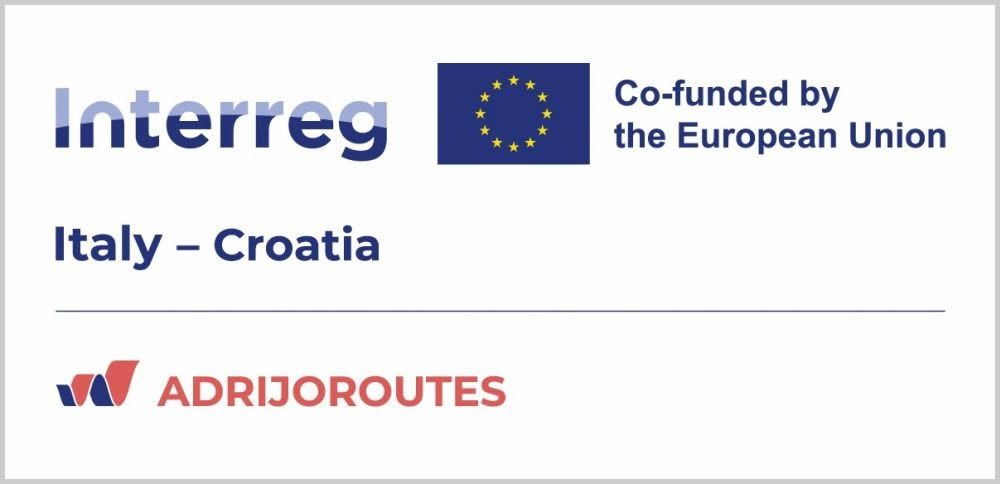
Programme Priority: Culture and tourism for sustainable development
S.O. 4.1 - Enhancing the role of culture and sustainable tourism in economic development, social inclusion and social innovation
Duration: 30 months
Start date: 01/2/2024 End date: 31/07/2026
The project is led by Central Adriatic Ports Authority and other partners are North Adriatic Sea Port Authority (Ports of Venice and Chioggia), Port of Ravenna Authority, Port Network Authority of the Eastern Adriatic Sea, Intermodal Transport Cluster, Dubrovnik Port Authority, Port of Zadar Authority, Public institution RERA SD for coordination and development of Split-Dalmatia county.
Overall project budget is EUR 2,662,685.40 (EUR 2,130,148.32 ERDF)
ADRIJOROUTES (Promoting sustainable solutions for maritime cultural tourism) is a project funded by the Interreg Italy – Croatia cross-border cooperation Programme (2021-2027), focusing on the need to mitigate the environmental and social impacts of mass touristic flows in the programme area and to reduce the overwhelming dependence of the main Adriatic touristic destinations on massive coastal tourism, that put at risk the social and economic resilience of local communities.
ADRIJOROUTES overall objective is to boost the sustainability, social inclusiveness and digitalization of the touristic sector of the Adriatic area, by promoting sustainable touristic experiences based on cultural assets of at least 8 Adriatic ports.
The co-developed ADRIJOROUTES should be sustainable and innovative, creating cultural offers and experiences in Adriatic ports promoting Adriatic heritage as drivers for innovative and inclusive touristic ecosystems as well as social integration of ports with local communities.
ADRIJOROUTES engages cultural and touristic actors of the programme area and beyond in the valorization of ports cultural assets as gateway for green and digital cultural destinations consistent with the social wellbeing of local communities.
The involved ports are Rijeka, Zadar, Split, Dubrovnik, Trieste, Venice, Ravenna, Ancona.
ADRIJOROUTES project focuses on three main sets of measures to achieve its objectives:
- The co-definition of a cross-border strategy and action plan
- The 7 co-developed ADRIJOUROUTES, composed of different experiences, physical and digital, of the involved ports and territories
- Creation of the Cross Border living museum
The project is led by Central Adriatic Ports Authority and other partners are North Adriatic Sea Port Authority (Ports of Venice and Chioggia), Port of Ravenna Authority, Port Network Authority of the Eastern Adriatic Sea, Intermodal Transport Cluster, Dubrovnik Port Authority, Port of Zadar Authority, Public institution RERA SD for coordination and development of Split-Dalmatia county.
PROJECT DURATION 01/02/2024 - 31/07/2026
ERDF 2.130.148,32 €
TOTAL BUDGET 2.662.685,40 €
- Project websites:
https://www.italy-croatia.eu/web/adrijoroutes
- Support ADRIJOROUTES following us on SocialMedia:
https://www.instagram.com/adrijoroutes/
https://www.youtube.com/channel/UCnoSyHhEGSdXyCCcEo7L9KA
Cross-border coordinated sea-land approach interconnecting ports of the Adriatic Sea with airports and urban areas
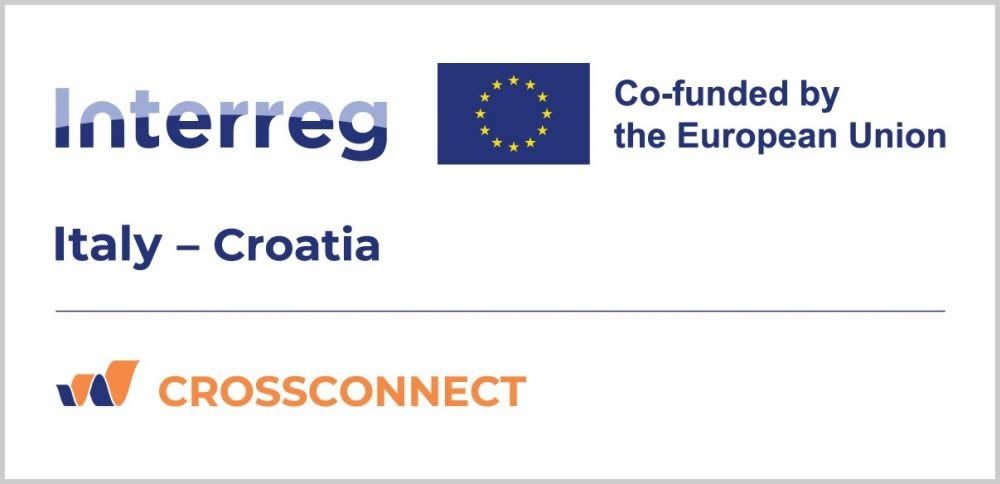
CROSSCONNECT, the "Cross-border Coordinated Sea-Land Approach Interconnecting Ports of the Adriatic Sea with Airports and Urban Areas," is financed by the Interreg Italy-Croatia Programme, specifically under Standard call, Specific objective 3.1. This objective focuses on developing and enhancing sustainable, climate-resilient, intelligent, and intermodal mobility, including improved access to TEN-T and cross-border mobility.
PROJECT OBJECTIVE
The overarching objective of CROSSCONNECT is to develop a multi-modal coordinated sea-land approach based on sustainable and technologically advanced solutions. These solutions will interconnect Croatian and Italian ports with urban areas and airports, thereby improving passengers’ mobility, all with the goal of cross-border cooperation.
MAIN PROJECT ACTIVITIES AND RESULTS
- Assessment and capitalisation of the available knowledge from ADRIGREEN and INTERPASS Interreg projects.
- Setting up a Cross-border technical group, composed by key experts (international experts in intermodal techniques and methodologies), stakeholders and project partners' members.
- Definition of a cross-border Transfer strategy with selection of solutions to be applied on a multi-modal approach.
- Definition and implementation of joint pilot actions and testing of green and ICT innovative solutions.
- Definition of the CROSSCONNECT strategic roadmap for intermodal passenger transportation between ports and the hinterland (urban areas and airports) to enhance passengers and tourist processing.
- Organization of strategic roundtables with port authorities with an objective to concretely engage them to adopt the intermodal solutions developed and tested during the project and to commit towards the creation of a new or modernised connection in other territories.
PARTNERSHIP
The CROSSCONNECT consortium consists of 8 project partners and 2 associated partners.
The project partners are:
•Dubrovnik Airport (Lead Partner)
•Dubrovnik Port Authority (Project partner 2)
•North Adriatic Sea Port Authority - Ports of Venice and Chioggia (Project partner 3)
•SAVE S.p.A (Project partner 4)
•Pula Port Authority (Project partner 5)
•Pula promet (Project partner 6)
•Southern Adriatic Sea Port Authority - Ports of Bari, Brindisi, Manfredonia, Barletta, Monopoli and Termoli (Project partner 7)
•Public Transport Company Brindisi S.p.A (Project partner 8)
The associated partners are:
•Port of Rijeka
•Port of Ancona
DURATION: 01.03.2024 – 30.04.2026
TOTAL PROJECT BUDGET: € 2.088.780,00 (ERDF € 1,671,024, co-financing € 417,756.00)
WEBSITE: https://www.italy-croatia.eu/web/crossconnect
PROFILES ON SOCIAL NETWORKS:
Facebook: https://www.facebook.com/profile.php?id=61558519746369
LinkedIn: https://www.linkedin.com/company/interreg-crossconnect/
YouTube: https://www.youtube.com/channel/UCJPP-h6yj0lg7lV9aRl86Bg
__________________________________________________________
KICK OFF MEETING IN DUBROVNIK
The CROSSCONNECT project, led by Dubrovnik Airport as the Lead Partner, officially initiated with a successful kick-off meeting held on April 18, 2024, at the Hotel Kompas in Dubrovnik. This meeting brought together all project partners, facilitating insightful discussions and strategic planning for the forthcoming activities.
CROSSCONNECT, the "Cross-border Coordinated Sea-Land Approach Interconnecting Ports of the Adriatic Sea with Airports and Urban Areas," is financed by the Interreg Italy-Croatia Programme, specifically under Standard call, Specific objective 3.1. This objective focuses on developing and enhancing sustainable, climate-resilient, intelligent, and intermodal mobility, including improved access to TEN-T and cross-border mobility. With a total budget of 2,088,780.00 € (ERDF 1,671,024€ and co-financing 417,756.00 €), the project started on March 1, 2024, and will conclude on April 30, 2026.
Over the course of 26 months, the CROSSCONNECT partnership, comprised of 4 Italian and 4 Croatian partners from 4 different metropolitan areas (Venice, Pula, Dubrovnik, and Bari-Brindisi), will collaborate to achieve the project's objectives. The project partners include:
- 4 port authorities (North Adriatic Sea Port Authority - Ports of Venice and Chioggia, Southern Adriatic Sea Port Authority - Ports Of Bari, Brindisi, Manfredonia, Barletta, and Monopoli, Dubrovnik Port Authority, Pula Port Authority),
- 2 airports (Dubrovnik Airport, SAVE S.p.A),
- 2 urban public transports (Public Transport Company Brindisi S.p.A., Pula promet),
- 2 associated partners (Port of Rijeka and Port of Ancona).
The overarching objective of CROSSCONNECT is to develop a multi-modal coordinated sea-land approach based on sustainable and technologically advanced solutions. These solutions will interconnect Croatian and Italian ports with urban areas and airports, thereby improving passengers’ mobility. The project aims to capitalize on available solutions and know-how, capturing knowledge from previous experiences and applying it to interconnecting ports, airports, and urban areas in a comprehensive approach. This includes innovative ICT-based and sustainable solutions, addressing a crucial gap in strategic transport planning in the Adriatic region.
"Dubrovnik Airport is delighted to lead this extremely important project as it spearheads innovative and sustainable solutions in intermodal transportation, fostering collaboration among key stakeholders to enhance connectivity and mobility in the Adriatic region,” said Josip Paljetak, Project manager from Dubrovnik Airport.
The kick-off meeting concluded with enthusiasm as participants affirmed their commitment to driving progress and creating a more connected and environmentally friendly transportation network in the region.




